Photo Story by Aung Zaw Oo 2023 3rd
Addressing Deforestation and Land Degradation through Community-Driven Tree Planting: A Case Study in Madagascar
Prepared by Aung Zaw Oo, Senior Researcher, Japan International Research Center for Agricultural Sciences, Tsukuba, Japan
Deforestation and land degradation pose major challenges for many regions of the world, with negative impacts on ecosystems, biodiversity, and human livelihoods. Madagascar, an island nation known for its unique flora and fauna, has experienced alarming levels of deforestation and land degradation in recent decades.
The island`s lush forests have been cut down on a large scale for agriculture, logging, and fuelwood collection, resulting in the loss of critical habitats and the disruption of local ecosystems. This process has also contributed to reduced crop production as loss of forest cover can affect local climate patterns, soil fertility, and water availability.
Aware of the urgency of the situation, local communities in Madagascar are at the forefront of initiatives to combat deforestation and restore degraded land. Community-driven tree-planting campaigns have gained traction as a means of addressing these environmental challenges. By engaging residents in tree planting and reforestation efforts, these initiatives aim to restore ecological balance, improve soil health, and promote sustainable land use practices.
Community engagement is a cornerstone of successful tree-planting efforts in Madagascar. Community-led efforts not only address environmental issues but also provide economic opportunities through sustainable agroforestry practices. Therefore, community-led tree-planting initiatives have emerged as an effective strategy to address the challenges, offering both environmental and economic benefits. By engaging local communities in restoring their natural environment, Madagascar`s journey toward sustainable land use and conservation is taking a positive and hopeful direction.
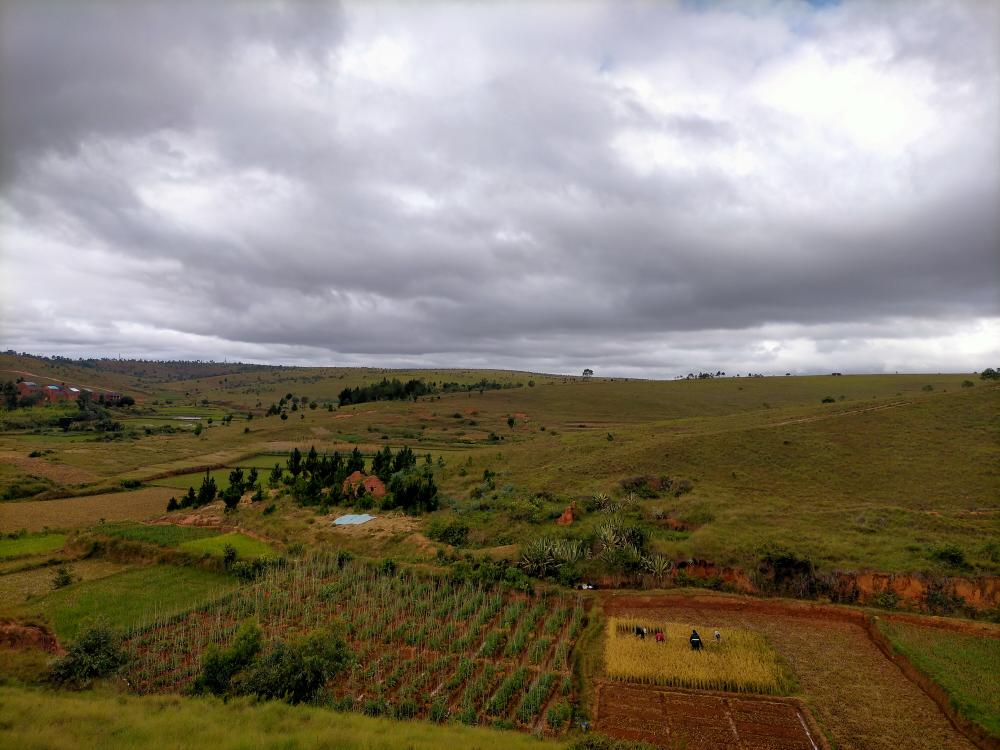
Photo 1: In the highlands of Madagascar, bare hills are connected to farmland in the valley. Lowland fields serve as the primary source of food, nutrition, and household income for smallholder farmers.
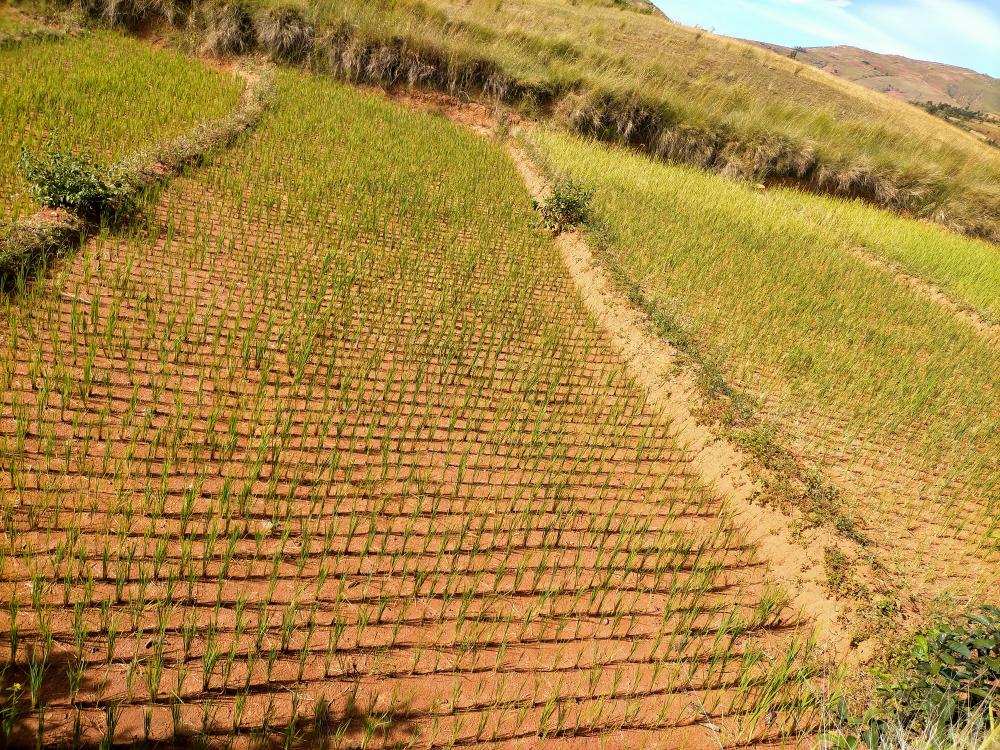
Photo 2: Lowland rice grows poorly due to the lack of water and nutrients partly affected by deforestation of the mountain slopes.
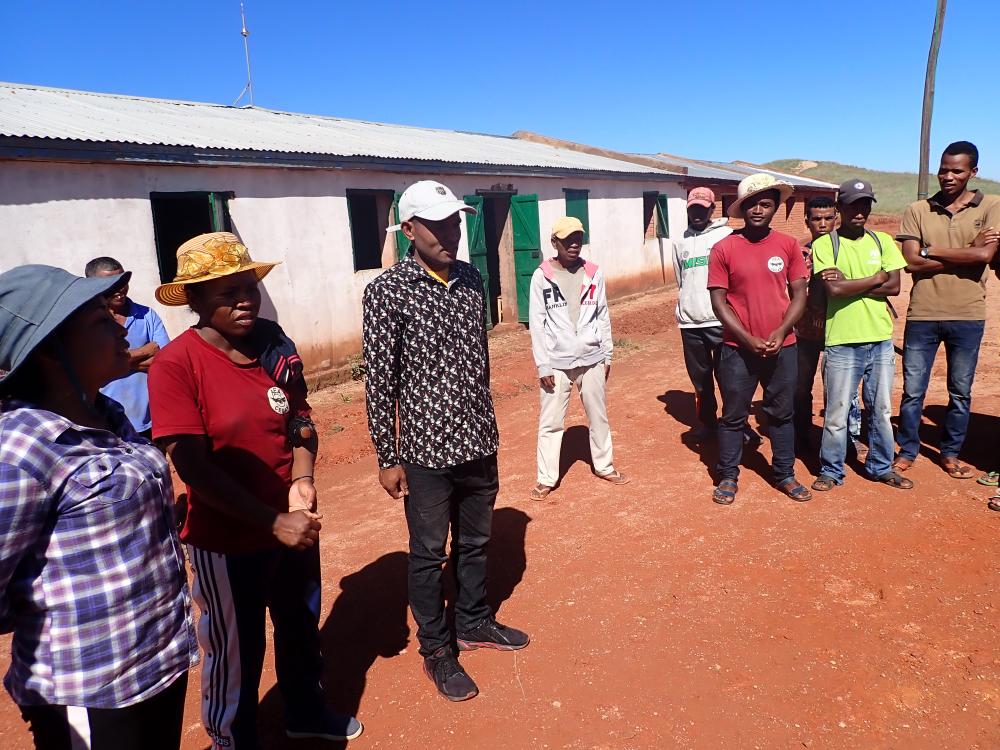
Photo 3: Discussion with local community leaders and teachers in front of middle school about initiating a tree planting project in bare hills. The school is on the top of a bare hill.
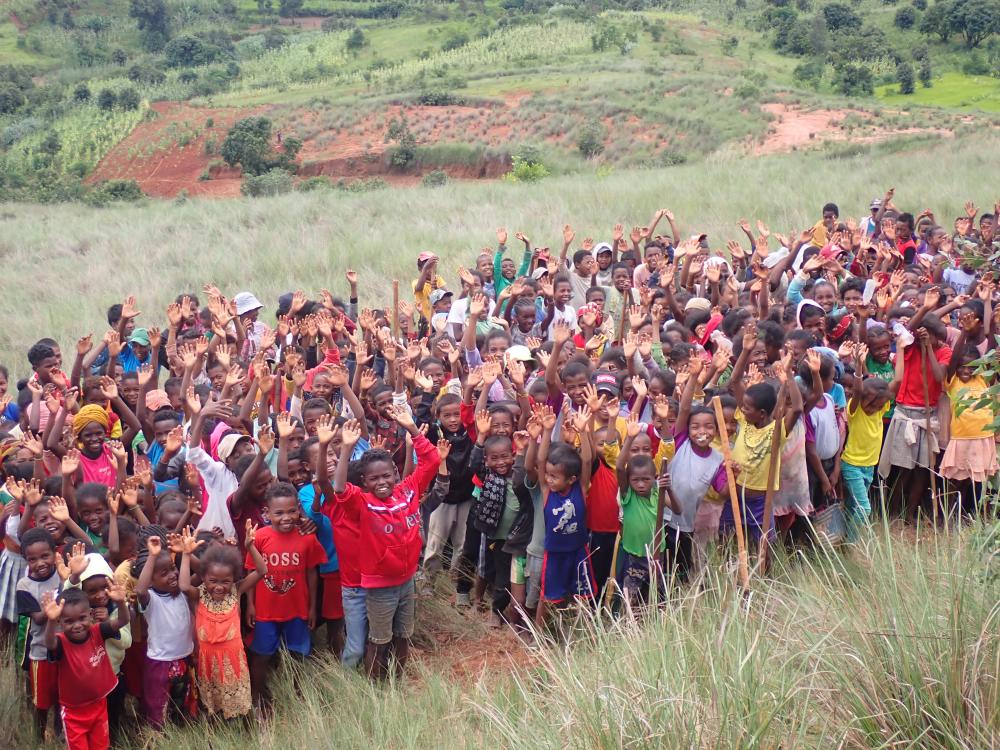
Photo 4: Elementary school students are happy to participate in the greening of the hills.
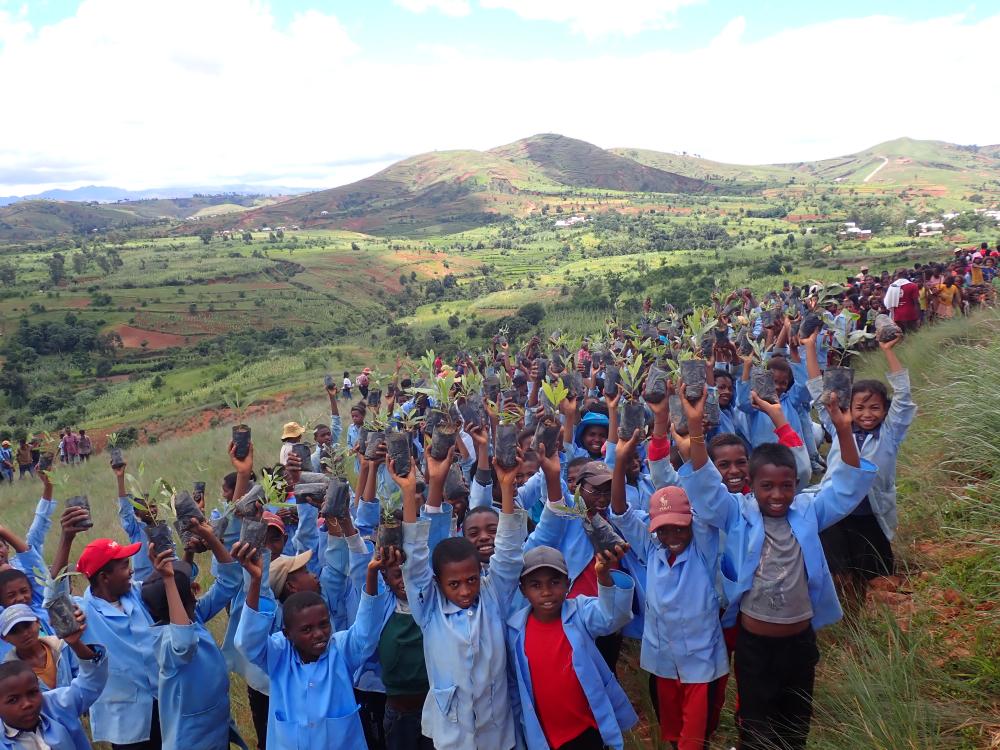
Photo 5: Ready to plant: young generation environmental education would play an important role in reforestation to combat climate change.
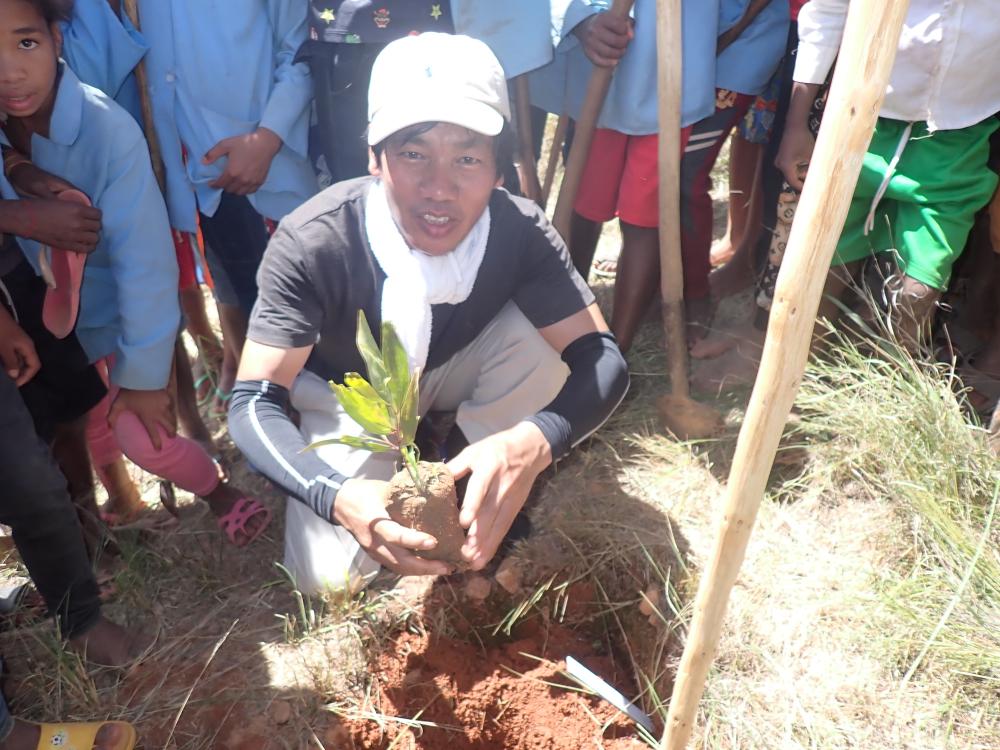
Photo 6: Demonstration for students on how to grow a tree.
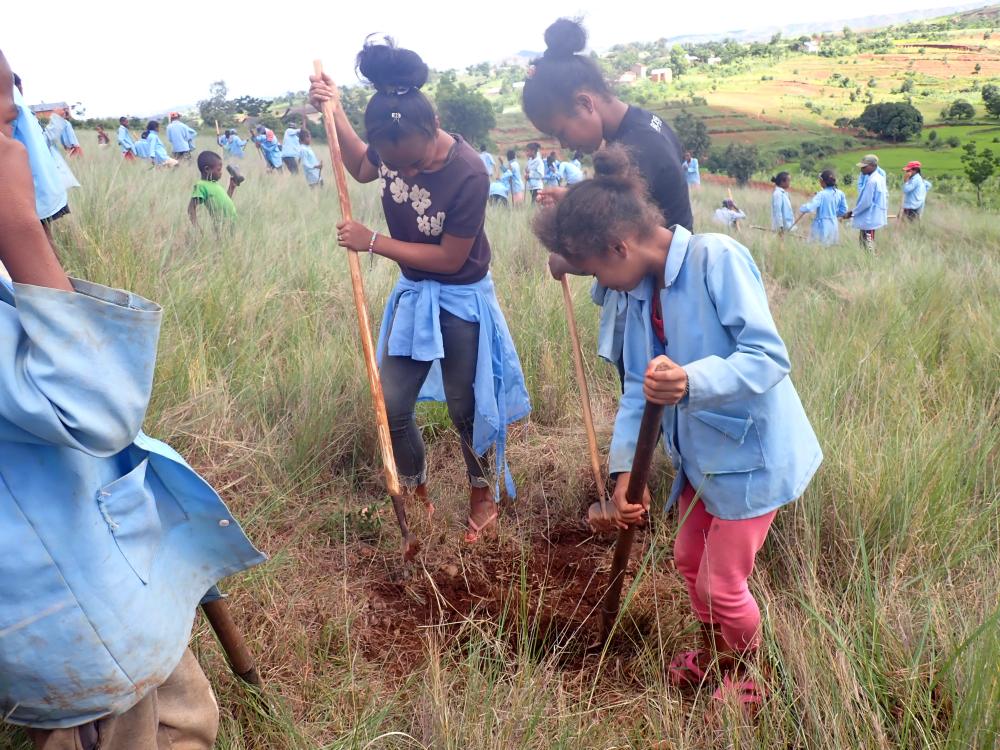
Photo 7: Schoolgirls dig a hole for planting trees. In 2023, more than 1500 tree seedlings have been planted with the power of 1000 students and schoolteachers in the Antohobe region bordering the city of Antsirabe in Madagascar.
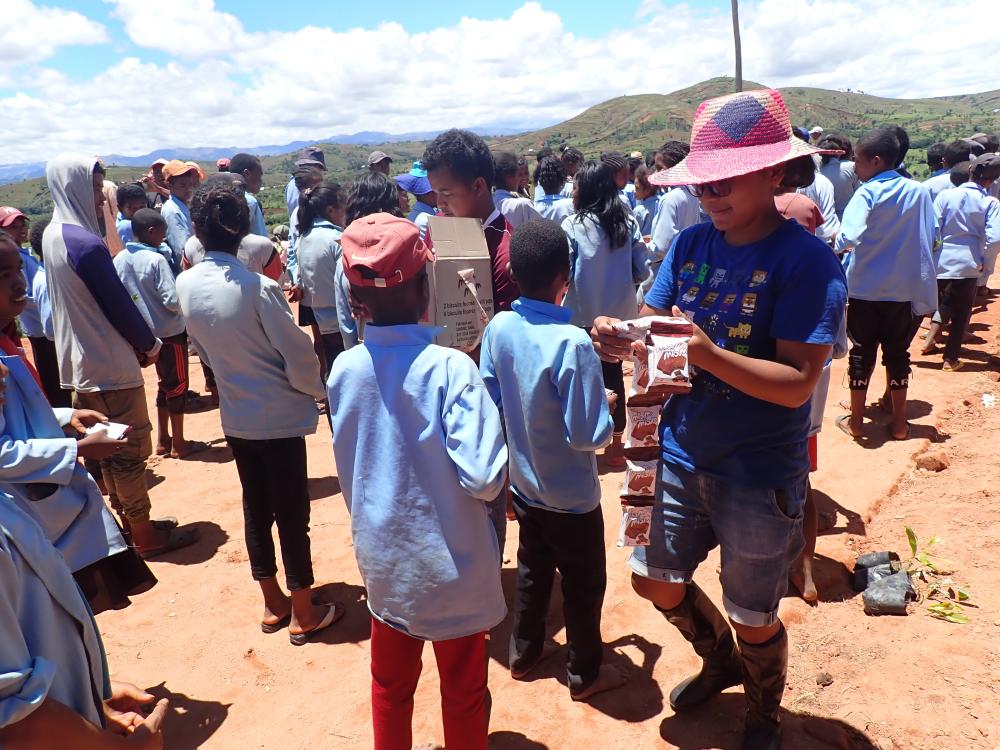
Photo 8: Students enjoy local snacks at the end of the event.
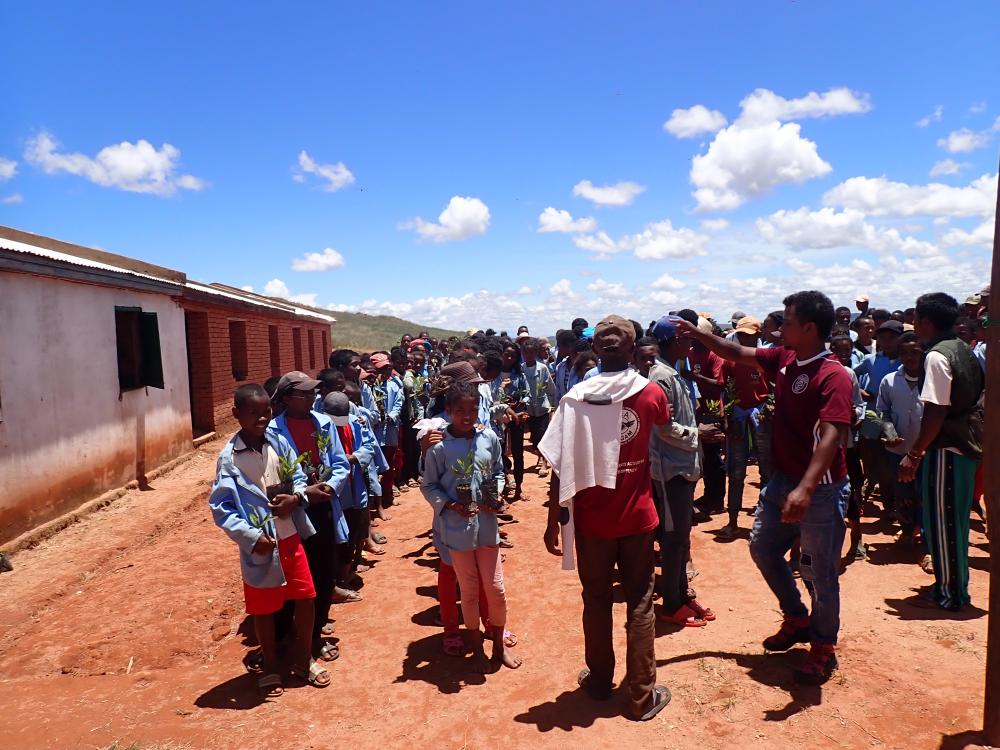
Photo 9: Students are happy to take home the remaining tree seedlings to grow around the local house.
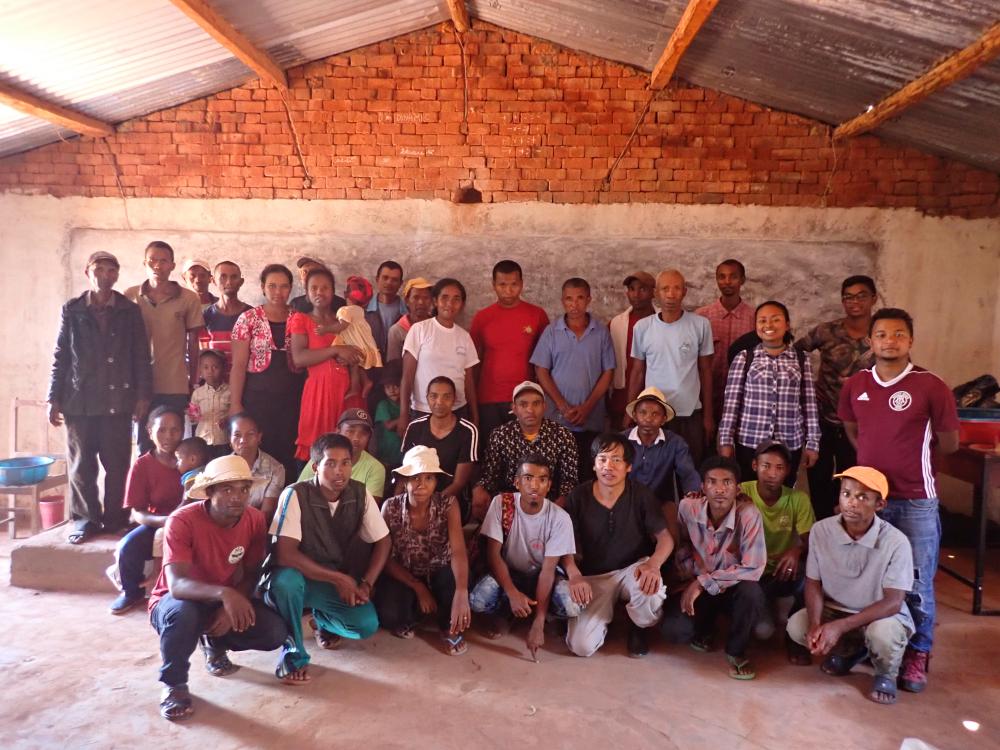
Photo 10: Discussion with community leaders and schoolteachers about caring for tree plants and continuing tree planting in the next season.
